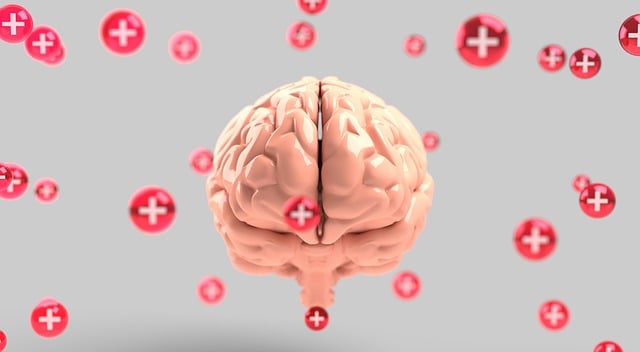Westminster Sexual Addiction Therapy (WSAT) focuses on emotion regulation as a key strategy for mental well-being and recovery from sexual addiction. Using evidence-based practices, they teach clients techniques like mindfulness and cognitive reframing to manage emotions effectively, reduce impulsive behaviors, and improve decision-making. WSAT's holistic approach aims to foster resilience, strengthen relationships, and enhance overall quality of life by addressing emotional triggers and building inner strength.
Emotion regulation techniques are essential tools for navigating life’s challenges. This comprehensive guide explores effective strategies, with a focus on the role of Westminster Sexual Addiction Therapy (WSAT) in teaching healthy coping mechanisms. We delve into understanding emotion regulation, its benefits across various aspects of life, and practical techniques that WSAT incorporates. Additionally, we discuss common challenges in implementing these skills daily, offering insights for personal growth and improved mental well-being.
- Understanding Emotion Regulation: Unlocking Healthy Coping Strategies
- The Role of Westminster Sexual Addiction Therapy in Teaching Emotion Regulation
- Practical Techniques for Effective Emotion Management
- Benefits and Challenges: Implementing Emotion Regulation Skills in Daily Life
Understanding Emotion Regulation: Unlocking Healthy Coping Strategies

Understanding emotion regulation is a pivotal step towards unlocking healthy coping strategies. At Westminster Sexual Addiction Therapy, we recognize that emotional wellness is integral to overall mental health and well-being. Our approach to teaching emotion regulation techniques focuses on empowering individuals to navigate their emotions effectively, fostering better social skills, and enhancing their ability to cope with life’s challenges.
By integrating evidence-based practices, our therapy sessions equip clients with the tools necessary to identify, process, and manage their emotional responses. This includes learning strategies such as mindfulness, cognitive reframing, and stress management techniques. Through these methods, individuals gain greater insight into their emotional triggers, develop healthier ways of expressing themselves, and ultimately, improve their mental wellness.
The Role of Westminster Sexual Addiction Therapy in Teaching Emotion Regulation

Westminster Sexual Addiction Therapy (WSAT) plays a pivotal role in teaching emotion regulation by focusing on the intricate link between sexual health and mental wellness. This therapeutic approach recognizes that emotional intelligence is not just a standalone skill but is deeply intertwined with overall mental health, including aspects covered under Mental Health Policy Analysis and Advocacy. WSAT employs evidence-based strategies to help individuals understand and manage their emotions, breaking down complex feelings into manageable parts.
Through specialized sessions, WSAT facilitates the development of healthy coping mechanisms, enabling clients to navigate challenging situations with enhanced emotional resilience. By addressing underlying issues related to sexual addiction or compulsive behaviors, this therapy contributes significantly to improving mental wellness. The result is a more balanced and controlled emotional state, which is essential for leading fulfilling lives and making informed decisions that positively impact overall mental health.
Practical Techniques for Effective Emotion Management

In the realm of emotion regulation techniques teaching, practical strategies play a pivotal role in fostering emotional well-being. At Westminster Sexual Addiction Therapy, we emphasize hands-on methods that empower individuals to manage their emotions effectively. Inner strength development is nurtured through mindfulness exercises and cognitive reframing, enabling folks to navigate life’s challenges with resilience. By integrating these techniques into daily routines, individuals can enhance their ability to respond, rather than react, to stressful situations.
Public Awareness Campaigns Development has a significant role in promoting emotional well-being on a larger scale. Through accessible resources and community engagement, we aim to destigmatize mental health concerns while providing practical tools for emotion regulation. These campaigns not only increase public awareness but also encourage the adoption of Emotional Well-being Promotion Techniques that can be readily applied in various settings, fostering healthier and more balanced lives.
Benefits and Challenges: Implementing Emotion Regulation Skills in Daily Life

Emotion regulation techniques offer a multitude of benefits when successfully implemented in daily life. These skills empower individuals to navigate challenging situations with greater composure and adaptability, reducing impulsive reactions and promoting healthier decision-making. By learning to recognize and manage their emotions effectively, people can enhance their overall well-being, strengthen relationships, and improve performance at work or school. This is particularly relevant for those seeking support from services like Westminster Sexual Addiction Therapy, where managing intense emotions associated with addiction recovery is crucial.
However, integrating emotion regulation skills into everyday life presents its own set of challenges. It requires consistent practice and a deep understanding of one’s emotional triggers, which can be demanding. Additionally, some individuals may struggle with self-awareness or face barriers due to past experiences, making it essential for mental health professionals to conduct thorough risk assessments for their clients (Risk Assessment for Mental Health Professionals). Building resilience is key to overcoming these challenges, and Burnout Prevention strategies should be considered alongside emotion regulation techniques to ensure long-term success.
Emotion regulation techniques, when taught effectively, such as through the proven methods offered by Westminster Sexual Addiction Therapy, can significantly enhance one’s mental well-being and daily functionality. By understanding and managing emotions healthily, individuals can navigate life’s challenges with greater resilience. Practical techniques outlined in this article equip folks with valuable tools to cope with stress, anxiety, and other emotional hurdles, ultimately fostering a more balanced and fulfilling life.














